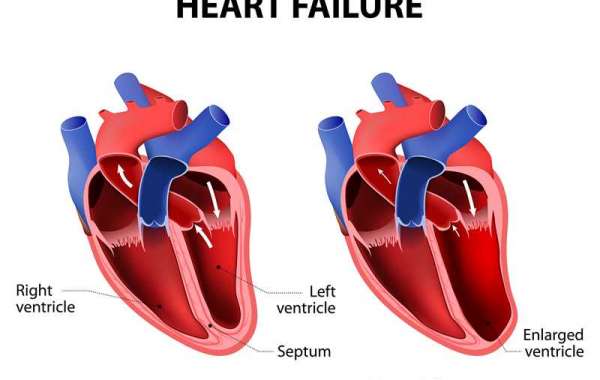Nearly 60 percent of the world population suffer from heart diseases. There are people as well as infants who suffer from heart diseases. Out of all the ones, there comes congestive heart failure.
What is congestive heart failure?
CHF is a chronic progressive condition. It mainly affects the pumping energy of your heart muscles. Often known as heart failure, CHF is that stage in the body where the building starts increasing. It builds up around the heart and pumps inefficiently.
You already know the structure of your heart. It has got 2 chambers. CHF occurs when your ventricles are unable to pump enough blood volume to your body. Thus the blood and other fluids get stacked up inside the lungs, abdomen, liver and lower body. The condition could be a threat to your life. It is very important to seek medical help when someone is suffering from the condition.
Common Types of CHF
Left-sided CHF is the most common type of Congestive Heart Failure. It occurs mainly when the left ventricle does not pump enough blood to the body. Gradually the blood is stored in the lungs making breathing difficult.
Systolic heart failure happens when the left ventricle does not contract properly. It reduces the level of force for blood circulation.
Diastolic failure, or diastolic dysfunction, occurs when the left muscle in the left ventricles becomes stiff. The heart is not able to fill enough blood with beats.
On the other hand, Right-Sided CHF occurs when the right ventricle has a problem in pumping blood to the lungs. Blood backs up in the blood vessels. This results in fluid retention in your lower extremities, abdomen, and other vital organs.
What are the different CHF stages?
Stage I
You will not be able to experience any specific symptoms at this stage. But you can manage it in the first place itself. With a proper lifestyle, maintaining healthy habits, heart medications and monitoring, you can prevent yourself.
Stage II
You will be comfortable while resting. Any sort of physical activity might cause fatigue, palpitations, and shortness of breath. You can manage yourself at this stage with proper changes in your lifestyle, heart medications and careful monitoring.
Stage III
Again here you are comfortable during rest but face problems during physical activity. Mild exercises cause fatigue, palpitations, or shortness of breath. Treatment is a bit complication. You need to talk to a heart specialist during this stage.
Stage IV
You will have problems with every physical activity as well as during the rest period. At this stage, it is the ultimate call. There is still a palliative care option. Reach out to the doctor and prevent yourself from reaching this stage.
Symptoms of CHF -
- fatigue
- irregular chest pain through the upper body
- swelling in your ankles knees and feet
- coughing developed through congested lungs
- weight gain
- wheezing
- increasing need to urinate
- shortness of breath at a rapid rate
- fainting
To diagnose CHF, there are loads of things that are put into consideration. It depends upon the doctors on how they will review your report. An electrocardiogram is one of the processes that records your heart's rhythm. Echocardiogram makes use of sound waves for recording the heart's structure and motion. An MRI is when it takes the image of your heart. There are also blood test and stress test. If you are having any such symptoms, it is advised to seek expert's help before turning yourself on medications.








